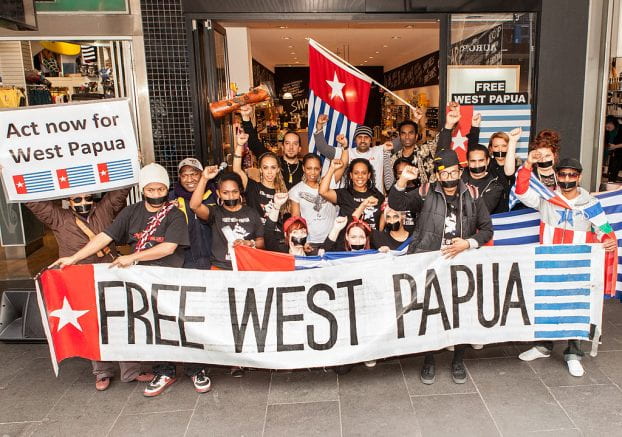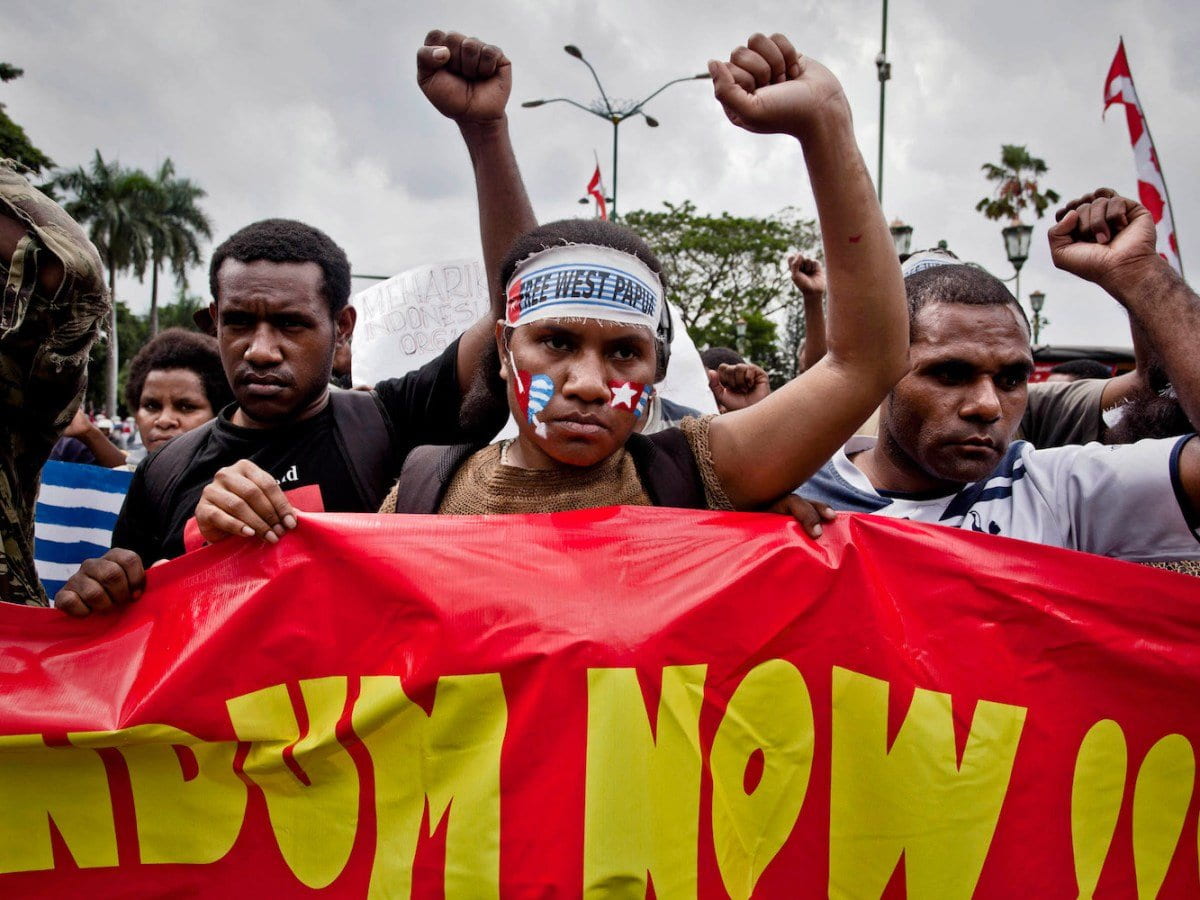By Jayla S. Carr
The region of West Papua has been plagued by a complex web of struggles and injustices that have left indelible marks on its society. These issues are deeply rooted in the region’s colonial past and have been compounded by ongoing struggles for self-determination, discrimination, and egregious human rights abuses. The people of West Papua continue to grapple with the multifaceted challenges posed by these historical injustices, and their struggle for justice and equality remains ongoing.
The Challenges of Self-determination
The Act of Free Choice that took place in 1969 was a significant event in the history of West Papua. At the time, the territory was under Indonesian rule, and a process was initiated to determine the status of West Papua. The process was organized under international pressure but lacked genuine representation and transparency. The participating representatives represented only 1 percent of the West Papuan population, and there were allegations of coercion. The Act of Free Choice has been a lasting source of frustration for West Papuans. It was seen as a profoundly flawed process, symbolizing a profound historical injustice. The vote was conducted in a minimal scope, with only 1,022 handpicked representatives voting. These representatives were pressured to vote in favor of Indonesian rule, and there were even allegations of torture and intimidation. The Act of Free Choice has been a contentious issue ever since. Many West Papuans believe that the process was rigged and that they were denied their right to self-determination. The vote was not conducted fairly and transparently, and the outcome was predetermined. The legacy of the Act of Free Choice continues to resonate, and it remains an important issue for West Papuans seeking justice and recognition.

Marginalization and Discrimination
Indigenous Papuans have faced systematic discrimination, resulting in stark socio-economic disparities. Unequal access to education, healthcare, and economic opportunities has entrenched a sense of disenfranchisement. Policies favoring non-Papuan migrants further contribute to marginalization exacerbating tensions and perpetuating historical injustices that affect the fabric of Papuan society. Al Jazeera News, reports that the government of Indonesia created a transmigration program that has been moving others from around the country to the Indigenous West Papuan lands, forcing them out of their own.
Cultural suppression in West Papua has taken various forms, and one of the most prominent ones is the restriction placed on indigenous languages and practices. The Indonesian government’s imposition of a dominant Indonesian culture over the diverse cultural landscape of West Papua is perceived as a significant threat to the rich tapestry of Papuan cultural identity. As a result, the Papuan population has been resisting attempts to assimilate them into a broader Indonesian identity for decades.
Recognizing and preserving West Papua’s unique cultural heritage cannot be overstated. The region is home to over 250 distinct indigenous groups, each with its language, customs, and traditions. The suppression of these cultures has had a severe impact on the Papuan people, leading to a loss of cultural identity and a sense of dislocation. Despite the challenges, there are ongoing efforts to preserve and promote Papuan culture. Organizations such as the Papuan Hope Language Institute are working to document endangered languages, while others are advocating for the recognition of customary laws and practices. These efforts are crucial in ensuring that the rich cultural heritage of West Papua is preserved and remembered.

Exploitation and Economic Disparities
West Papuan natives argue that they have not received proportional benefits from economic activities, particularly mining and logging. Military operations that displace indigenous Papuans pave the way for extractive industries and Indonesian settlers, which exacerbates instability and makes it difficult for people to work and earn a living due to the constant threat of violence.
The United Nations human rights experts have been advocating for access to the area to investigate reports of human rights violations. The Office of the High Commissioner on Human Rights estimates that between 60,000 and 100,000 people have been internally displaced since 2018. West Papuans have experienced racism ranging from common insults such as “monyet,” meaning monkey, to active discrimination, limiting their business opportunities and making them feel like second-class citizens. Environmental degradation further exacerbates their struggles and negatively impacts traditional livelihoods. Addressing these economic imbalances is crucial to promoting sustainable development and redressing historical injustices in the region.
Movements and Resistance
The Indonesian government’s actions have increased military presence in the region and led to the emergence of West Papuan movements such as the National Committee for West Papua(KNPB) and the Free Papua Movement (Organisasi Papua Merdeka or OPM). The OPM advocates for independence, which has led to occasional violence and clashes between pro-independence groups and the Indonesian military.
Reports of human rights abuses by the Indonesian security forces have been persistent in West Papua. Violence, extrajudicial killings, arbitrary arrests, and restrictions on freedom of expression and assembly contribute to a climate of fear. The systematic nature of these abuses underlines the urgent need to address human rights concerns as an integral part of rectifying historical injustices in the region. Since the annexation of West Papua in the 1960’s, over 100,000 civilians have been killed in the indigenous land. The most known tragedy was the Biak Massacre in 1998, where tensions between the West Papuan people and the Indonesian military came to a boil. The total number of state forces deployed in the region remains classified. However, Papua and West Papua provinces are known to have the country’s most significant presence of Indonesian troops.

Conclusion
The historical injustices embedded in West Papua’s past are intricate and interconnected, requiring a nuanced approach to resolution. A comprehensive strategy should acknowledge the complexities of colonial legacies, contested political processes, discrimination, human rights abuses, cultural suppression, and economic disparities. It is crucial to draw international attention, promote meaningful dialogue, and make concerted efforts to establish justice, equality, and self-determination in West Papua. This is necessary to rectify historical injustices and pave the way for a more inclusive and sustainable future in the region. The Free West Papua Campaign website is a great resource to learn about organizations actively working towards this goal, and you can even donate to support their cause.
Here are some websites offering more information about this blog post



